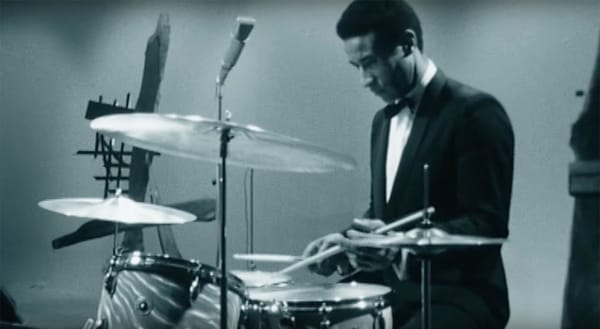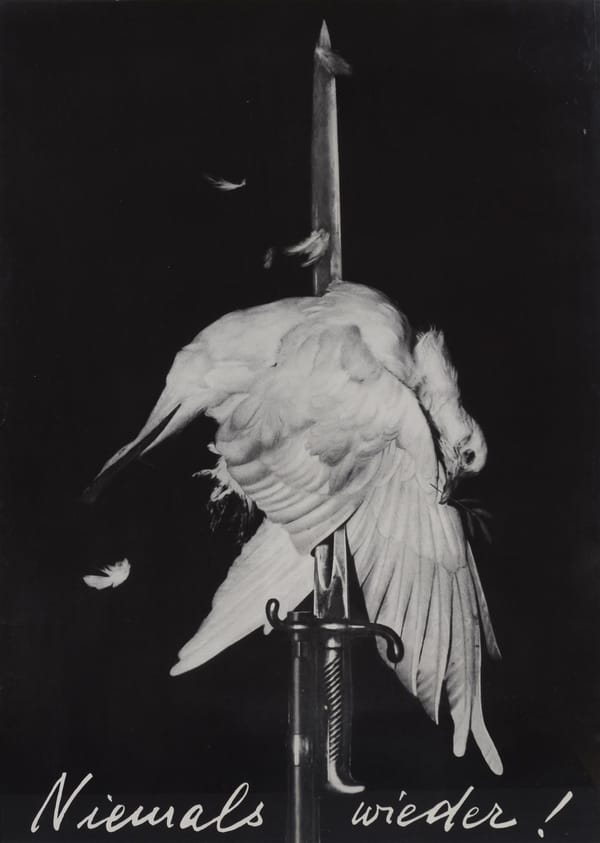Jeremiah, James Baldwin, and Despair
When I was 19 I took a class on the biblical prophets and studied the prophet Jeremiah. I was drawn to Jeremiah because of his reputation as “the weeping prophet.” The book bearing his name contains a litany of personal laments. Jeremiah was unique because of the way he wrestled with his prophetic vocation. When God calls him to be a prophet, God uses intimate, motherly language to convey how special Jeremiah is: “Before I formed you in the womb I knew you, before you were born I set you apart” (1:5). But Jeremiah does not respond like Isaiah, readily saying “Here I am!” (Isa. 6:8). Instead, Jeremiah’s first word in response translates to, “Alas!” (v.6). He knew it would be a burden to bear the message of God, and it was a burden with which he never fully reconciled.
In my final paper for the class, I wrote that it was in Jeremiah’s capacity for despair that God found use for him. I said that as someone who had known a lot of despair myself. I was an emotional kid (an “emo kid”). I had had my heart broken a lot. I had struggled with a lot of self-loathing. I was a cryer. It was comforting to read about Jeremiah and learn that capacity for suffering was something that could be useful, even holy.
Thanks for reading Jack’s Substack! Subscribe for free to receive new posts and support my work.
Years later, I discovered the work of James Baldwin. Baldwin was another prophet with a deep sense of sorrow. In fact, he even compared himself to Jeremiah in his famous “I built the railroads” speech from his debate with William F. Buckley at Cambridge University in 1965. He opened by saying, “I find myself, not for the first time, in the position of a kind of Jeremiah.” In his last interview, Baldwin called his earlier self a “despairing witness.” In No Name in the Street, he had written, “Hope—the hope that we, human beings, can be better than we are—dies hard; perhaps one can no longer live if one allows that hope to die. But it is also hard to see what one sees.” The assassinations of Malcolm X and Martin Luther King, Jr. were not to him just shocking news stories but the deaths of men he knew and loved. And the meaning of their deaths, what their deaths said about what they lived for, mattered to Baldwin a great deal more than any fireside opinion about politics could mean for the average voter. Like Jeremiah, Baldwin felt the state of the world at a deep, inner level. “My anguish, my anguish! I writhe in pain! Oh the walls of my heart! My heart is beating wildly; I cannot keep silent, for I hear the sound of the trumpet, the alarm of war” (Jer. 4:19).
I am drawn to Baldwin for the same reason I am drawn to Jeremiah. Both prophets had a strong sense of what humanity could be, of the justice that could be realized; and because of that awareness, they experienced a profound agony over how the world actually is. In the tension between imagining what could be and despairing over what is, they witnessed to something transformational. They witnessed to the truth about ourselves, about who we are as human beings, and what that could mean for our future.
When I wrote that God made use of Jeremiah’s capacity for despair, I was believing that God would make use of my despair as well. How appropriate it was, then, when I started Despair Sanctuary eleven years later. Billed as “a drone metal vigil for all who are weary,” Despair Sanctuary is an occasion for people to gather and hold negative emotions together. It is a time for sitting with the pain we experience from life’s woes.
Since the first Despair Sanctuary in October 2023, Jeremiah and James Baldwin have both played a part. At the vigil, we project quotes on a screen at the front of the sanctuary, and we always feature quotes from Baldwin and Jeremiah. My patron saints of despair, they center me and remind me what it is I live for. They remind me that despair is not merely a cop out, nor is it necessarily a resignation to cynicism; for hidden in despair is the human’s love for the way things should be. Perhaps if we make space for the expression of our despair, we can bear witness that another world is possible.
In community, lament over the status quo becomes a revolutionary act, as God makes thunder with our cries.
Despair Sanctuary
November 9, 2024
8:00pm
Old First Reformed Church
729 Carroll St, Brooklyn, NY
Thanks for reading Jack’s Substack! Subscribe for free to receive new posts and support my work.



